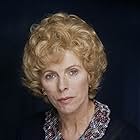This really is exceptional. The Crimean War, which took place largely on an isolated peninsula in southern Russia in 1855, isn't a popular subject in America but it's hard to know why. We can see echoes of it in the American Civil War that followed a few years later. American troops copied the ballooning red pantaloons of the French zouaves, for instance. And one American observer, George McClellan, twice appointed General of the Army of the Potomac, learned the lesson of siege warfare all too well. The town of Sebastopol, California, was given its name during the siege of the Russian city.
It was one of the first wars to be covered internationally by journalists, artists, and photographers. Longfellow wrote a famous poem, "The Lady With the Lamp," about Florence Nightingale, who established nursing as a profession in the Crimea. Alfred Lord Tennyson wrote the still-more famous "The Charge of the Light Brigade," celebrating British heroism while admitting that "someone had blundered." The reports from the battlefield carried the same shock as Mathew Brady's photographs of the Confederate dead at Antietam. Not that the shock was sufficient to prevent any similar wars later.
The viewer gets to hear some of the reports and letters from the journalists and soldiers, much like Ken Burns' magnificent "The Civil War." Some of the reporters and officers did evocative sketches and water colors. There are still photos, and even movie footage of survivors of the war in Britain, France, and Russia, parading awkwardly but proudly before the rolling cameras. The man -- a boy at the time -- who blew the bugle sounding the cavalry charge at "the valley of death" gets to blow the call again on a scratchy old recording. Some of the material is amazing.
Of the war itself, it can be said that it changed the map of Europe, but not much for the better. The Ottoman Empire centered in Turkey was losing is grip and becoming weak. Defenselessness is a condition that other countries will not allow. Like a vacuum, it tends to be filled by someone else. The invitation was open.
And so Czarist Russia sent an army south to occupy Constantinople, now Istanbul. The Turks were offended, and the British and French were irritated, so the European powers opposed the Russian expedition with their own armed forces. And so began what was unquestionably one of the most mismanaged wars of the century. Wars in general are stupid. Not any war in particular but war in the abstract. From an evolutionary point of view, it's a hell of a way to promote the species -- by killing each other off for ephemeral reasons like natural resources or, far worse, for national honor.
Everybody except the Turks seemed to get something out of this bloody conflict. The Brits now had an empire on which the sun didn't set for more than another half century. The French were able to feed their chauvinism and were encouraged to preserve their own colonies. The Russians learned that they needed to modernize and build up industrial might to keep their geopolitical position. (The Czar was prompted to free the serfs as a result.) Only the Turks lost. The Balkan part of the Ottoman Empire was broken up into a jigsaw puzzle of small states (Serbia, Montenegro, and so on) whose ethnic and religious animosities we're still dealing with today.
The narrative is thorough, well written, and gripping. The reports and letters elicit the usual emotions. They make us wonder why such wars are ever waged, while we set about getting ready for the next one.






